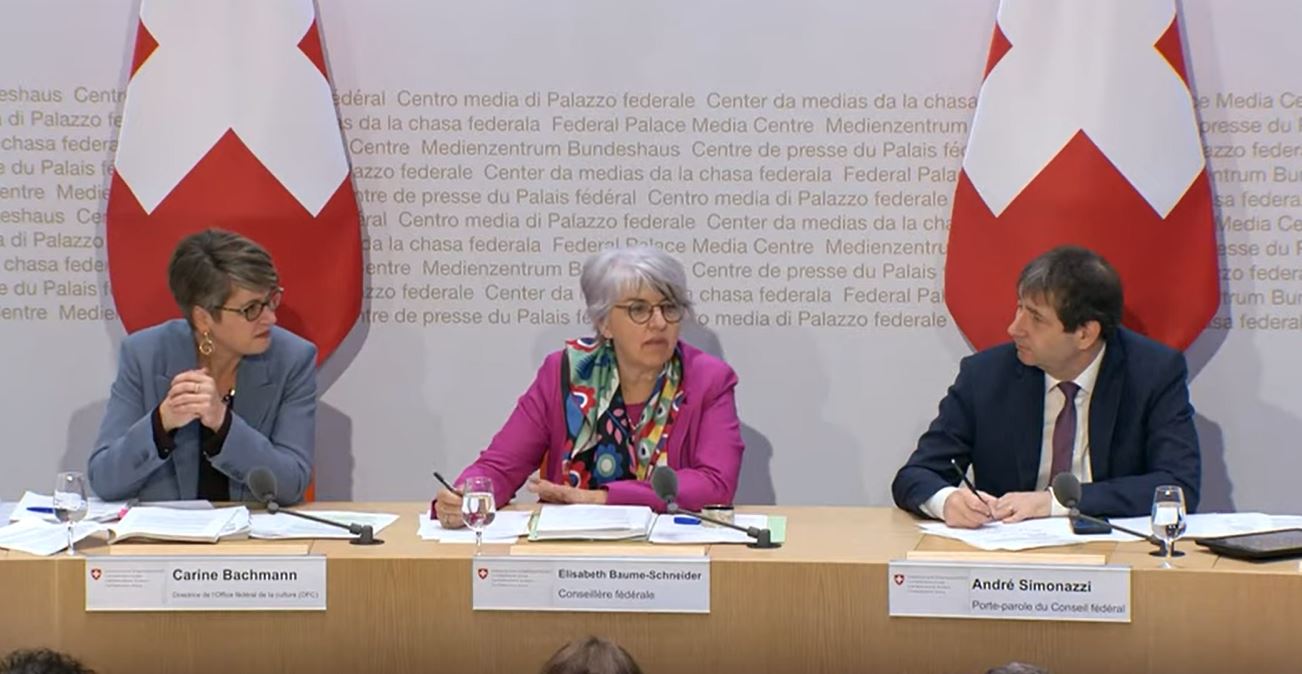Autumn session dedicated to culture
In the fall session, Parliament concluded two important deals for the cultural sector. "Encouraging signs for the cultural sector!" writes the Culture Taskforce.

On September 25, the Culture Taskforce wrote the following about the design of the Covid-19 Act: "The cultural sector is largely pleased with the federal parliament's design of the Covid-19 Act. The continuation of support measures for the cultural sector is essential for the preservation of cultural diversity. The Culture Taskforce welcomes the following decisions in particular:
Art. 1 para. 3 Involvement of the cantons and umbrella organizations of the social partners in the development of measures
Art. 11 para. 2 The increase in the cost ceiling to CHF 100 million for compensation for cultural enterprises
The federal government continues to provide for loss compensation for cultural enterprises, half of which is to be co-financed by the cantons. Unfortunately, the cultural sector's call for organizers to be additionally covered by a kind of risk fund was not taken up. This makes it all the more important to find a practical, unbureaucratic form of compensation that gives event organizers as much planning security as possible. We regret that creative artists will be excluded from the cancellation compensation in future. It is therefore all the more important that the cantons also accept the fees and royalties of cultural professionals in the cancellation calculations of cultural enterprises.
Art.11 Ab. 3 Transformation projects
New formats must be tried out. However, pure streaming offerings cannot be a substitute for live performances, neither economically nor socially. Constructive cooperation with the funding bodies is necessary here so that new or adapted formats can be created. Not only cultural enterprises should benefit from this funding, but also collaborative projects by cultural professionals themselves.
Art.11 para 4 Continuation of essential emergency aid by Suisseculture Sociale
It is sensibly defined and now covers all important groups of beneficiaries. It is unclear whether the budget will be sufficient if cultural workers no longer receive compensation for loss of earnings, there is no more short-time working compensation for temporary employees and the compensation for loss of earnings for the self-employed will only be continued until mid-2021.
Art. 15 Measures to compensate loss of earnings for self-employed persons and persons in an employer-like position
Compensation not only in the event of business interruption, but also in the event of significantly restricted operation, is crucial for many and to be welcomed. However, it is regrettable how Parliament defines the "significant restriction": Only those with less than 55% of average turnover over the last five years are eligible. The period of validity until mid-2021 is also too short, especially for the cultural sector, as it will take longer to return to normal operations.
Art. 17 That the Short-time work for temporary employees is to be discontinued, we regret this. In the cultural sector, many people work in temporary, project-related short-term positions. They are already working in precarious conditions and do not meet the conditions for daily unemployment benefits. The only support available to them under the federal measures is emergency aid from Suisseculture Sociale. Unfortunately, the proposal to extend the framework period for unemployment insurance in order to allow short-term temporary employees access to unemployment insurance was not heard in parliament either."
Cultural message 2021-2024
The debate on the 2021-2024 cultural dispatch went almost unnoticed. Parliament not only approved the budget proposed by the Federal Council, but also increased it in certain areas. The Culture Taskforce welcomes the fact that "compliance with minimum or indicative fees set by professional associations for cultural workers has been included in the cultural dispatch as an explicit condition for cultural funding. This is a positive signal both for Swiss cultural professionals whose livelihoods are threatened by the Covid-19 crisis and an invitation to other cultural funding institutions - cantons, cities and municipalities as well as private foundations - to follow suit."








